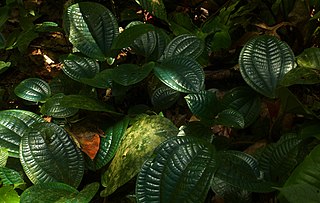
The Emperor in Han Dynasty, also released under the title The Emperor Han Wu in some countries, is a 2005 Chinese historical drama television series based on the life of Emperor Wu of the Han dynasty. It uses the historical texts Records of the Grand Historian and Book of Han as its source material.

Romance of the Three Kingdoms is a Chinese television series adapted from the classical 14th century novel of the same title by Luo Guanzhong. The series was produced by China Central Television (CCTV) and was first aired on the network in 1994. It spanned a total of 84 episodes, each approximately 45 minutes long. One of the most expensive television series produced at the time, the project was completed over four years and involved over 400,000 cast and crew members, including divisions of the People's Liberation Army from the Beijing, Nanjing and Chengdu military regions. Some of the dialogues spoken by characters were adapted directly from the novel. Extensive battle scenes, such as the battles of Guandu, Red Cliffs and Xiaoting, were also live-acted.

The China women's national volleyball team represents the People's Republic of China in international volleyball competitions and friendly matches governed by Chinese Volleyball Association. They are one of the leading and most successful squads in women's international volleyball, having won ten championships titles in the three major international competitions of volleyball, including five World Cups, two World Championships and three Olympic titles. The current head coach is Cai Bin.

Three Kingdoms is a 2010 Chinese television series based on the events in the late Eastern Han dynasty and the Three Kingdoms period. The plot is adapted from the 14th century historical novel Romance of the Three Kingdoms and other stories about the Three Kingdoms period. Directed by Gao Xixi, the series had a budget of over 160 million RMB and took five years of pre-production work. Shooting of the series commenced in October 2008, and it was released in China in May 2010.

The Water Margin is a 1998 Chinese television series adapted from Shi Nai'an's classical 14th-century novel of the same title. It was produced by CCTV with Zhang Jizhong as producer. It was first broadcast in China in January 1998. The series also featured action choreography by Yuen Woo-ping.

The Return of the Condor Heroes is a Taiwanese television series adapted from Louis Cha's novel of the same name. It was first broadcast on CTV in 1984 in Taiwan.

All Men Are Brothers is a 2011 Chinese television series adapted from Shi Nai'an's 14th century novel Water Margin, one of the Four Great Classical Novels of Chinese literature. The series is directed by Kuk Kwok-leung and features cast members from mainland China, Taiwan and Hong Kong. The series was first broadcast on 8TV in March 2011 in Malaysia.

Black & White is a 2009 Taiwanese drama starring Vic Chou, Mark Chao, Ivy Chen and Janine Chang. It was produced by Prajna Works and directed by Cai Yuexun (蔡岳勳) with location filming in Kaohsiung, Taiwan.

Outlaws of the Marsh is a Chinese television series adapted from Shi Nai'an's classical 14th century novel Water Margin. It was first broadcast on Shandong TV in China in 1983, and was not completed until 1986. The series was one of the earliest television dramas with an ancient China setting to be produced in mainland China. It was divided into different parts, each focusing on the story line of a certain character. Widely regarded as a classic in mainland China, the series won a Golden Eagle Award.

Justice Bao is a Chinese TV series starring producer Jin Chao-chun as the Song dynasty official Bao Zheng. The series ran for 3 seasons from 2010 to 2012. In addition to Jin, Kenny Ho, Fan Hung-hsuan and Lung Lung again reprise their iconic roles from the 1993 Taiwanese hit Justice Pao and the 2008 Chinese series Justice Bao.

Tang Ming Huang is a Chinese television series based on historical events in the reign of Emperor Xuanzong of the Tang dynasty. The series was directed by Chen Jialin and starred Liu Wei as the eponymous emperor. It was first broadcast on CCTV-1 in 1990 in mainland China.

Heroes in Sui and Tang Dynasties is a Chinese television series based on Chu Renhuo's historical novel Sui Tang Yanyi, which romanticises the historical events leading to the fall of the Sui dynasty and the rise of the Tang dynasty. The series was first broadcast in mainland China on various television networks on 14 January 2013. It is not to be confused with Heroes of Sui and Tang Dynasties 1 & 2, a similar television series also based on the novel, but was released earlier in December 2012. Filming for the series started on 5 November 2011 at the Hengdian World Studios and wrapped up in May 2012.
Rookies' Diary is a comedy television series created in Taiwan. It has a total of 43 episodes of approximately 1 hour each. It aired from July 2, 2010 to April 22, 2011. The series is about how a group of teenagers trains in the military office for 36 days. During these 36 days, they work really hard. They made new friends and had lot of fun. Even though, they still worked hard and became more mature when they left the military service of 36 days. The director of the series is Wang Wei. He is a really successful Taiwanese director around the world.
The China Badminton Super League (CBSL) is the prime National team competition for badminton players in China. The China Badminton Super League was re-launched in 2009 after a failing attempt seven years earlier. Liu Fengyan, director of the Table Tennis and Badminton Administration Center under China's State General Administration of Sport, announced the re-launch during the 50th anniversary meeting of the Chinese Badminton Association.

Sun Yueh was a Taiwanese actor.
The Sound of Happiness is a Taiwanese Hokkien television drama that began airing on SET Taiwan in Taiwan on 26 December 2018, from Mondays to Fridays, and ended its broadcast on 5 August 2020. The series started production on 22 November 2018. The series is aired every weeknight at 8pm and is simulcast one hour later on SET Taiwan's sister channel, SET Drama.

Bredia is a genus of plants in the family Melastomataceae. Species in this genus are characterized by papery leaf texture and persistent and enlarged ovary crown, enclosing an inverted frustum-shaped depression at capsule top. This genus includes at least 21 species, 15 distributed in mainland China, one in north Vietnam, five in Taiwan and one extending to the Ryukyu Islands.

Phyllagathis is a genus of flowering plants in the family Melastomataceae, native to India, southern China, Southeast Asia, and Malesia. The taxon is believed to be highly polyphyletic.














